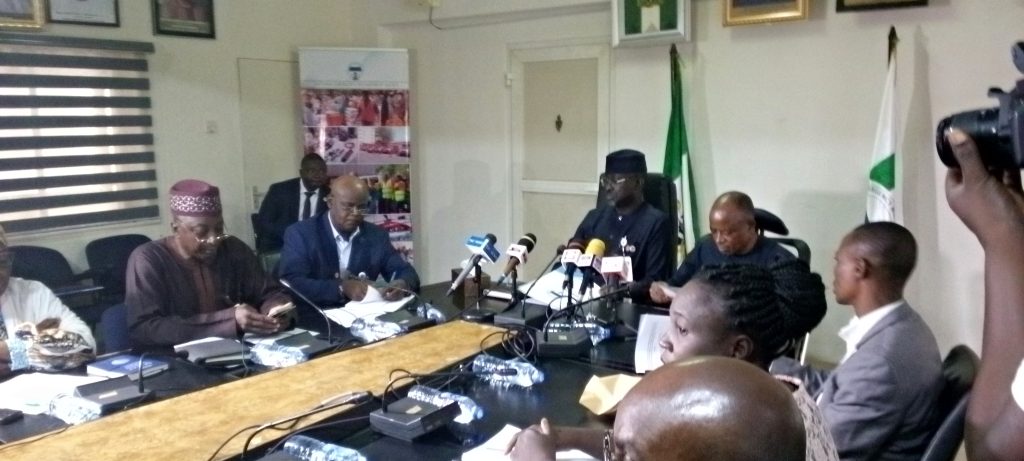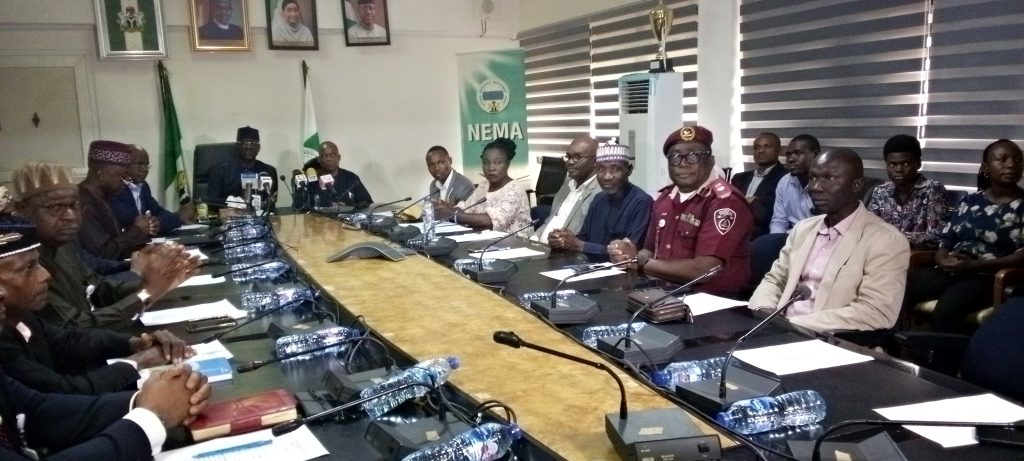
PROTOCOL:



Ladies and Gentlemen, as we are all aware, quite a lot of of our communities are passing through a challenging moment in respect of the flood disaster that has hit many states of our dear country. So far, it is on record that 29 States including the FCT have experienced heavy flooding with more than 500,000 persons already affected. Our record indicate that more than 300 lives have been lost, over 500 persons are seriously injured with more than 100,000 others displaced and living either in temporary shelters including schools, other public buildings amongst benevolent host families. I therefore, welcome you to this emergency technical meeting convened to urgently review the emergency situation and to plan for further action by all emergency responders. This meeting will enable us save lives, safeguard livelihoods and restore normalcy in all the impacted states.
Based on our communication with the Nigeria Hydrological Services Agency (NIHSA), the Lagdo dam operators in the Republic of Cameroun have commenced the release of excess water from the reservoir by 13th September, 2022. We are aware that the released water cascades down to Nigeria through River Benue and its tributaries thereby inundating communities that have already been impacted by heavy precipitation. The released water complicates the situation further downstream as Nigeria’s inland reservoirs including Kainji, Jebba, and Shiroro are also expected to overflow between now and October ending according to NIHSA. According to NIHSA, Kainji and Jebba dams have already started spilling exess water from their reservoirs. This will have serious consequences on frontline States and communities along the courses of rivers Niger and Benue. This states include, Adamawa, Taraba, Benue, Niger, Nasarawa, Kebbi and Kogi states. Niger Delta states including Edo, Delta, Anambra, Cross River, Rivers and Bayelsa are expected to record heavy floods due predicted above normal rains coupled with the combined waters of rivers Niger and Benue as they empty into the region.
Ladies and Gentlemen, the situation requires urgent attention of all stakeholders to match this early warning with early action. Consequently, I want to advise all the governments of the frontline states to move away communities at risk of inundation, identify safe higher grounds for evacuation of persons and preposition adequate stockpiles of food and non-food items, portable water, hygiene, safety and security to enable them a fair level of comfort during periods of possible displacement. This actions become necessary as we collectively work towards a lasting solution to the annual threats of floods. I also call on the media to support NEMA in the sensitization of the public to enable them comply to early warning messages effectively. I implore the media, which has always proved to be a reliable partner of NEMA, to give us all the necessary support including communication in local languages.
The National Emergency Management Agency (NEMA) is monitoring the situation and will consider the activation Emergency Operation Centres (EOCs) to coordinate the flood disaster response in all the states at risk. In this regards, I seek for the full support of state governments especially through their State Emergency Management Agencies (SEMAs) and other critical state level actors. Meanwhile, NEMA will continues working with the Nigeria Hydrological Services Agency (NIHSA) and the Nigerian Meteorological Agency (NIMET) to downscale Impact Based Weather Forecast to the public as the extreme weather event unfolds. All NEMA staff on leave have been recalled back to office in view of the present emergency situation. Search and Rescue equipment, including those recently inducted have been deployed to the most affected states. These include motorised and inflatable boats for Search and Rescue as well as mobile water purification plants to provide portable water where sources of drinking water have been compromised. All NEMA Zonal, Territorial and Operation Offices have been activated to coordinate resources in their areas of responsibilities to respond to the situation. Headquarters staff have also been deployed to support the ZTO, Territorial and Operational Offices of NEMA. We have also prepositioned food and non-food relief items which we have already started deploying to affected states.
I call on all relevant frontline responders to intensify their preparedness efforts, carry out early warning targeting the most vulnerable communities, prepare for evacuation to safer ground and provide all other life saving assistance to persons at risk. I expect SEMAs of the identified states to organizing regular State Emergency Coordination Fora meetings to prepare state level actors to be adequately prepared for this very important national call to duty. As we always emphasise, disaster management is everyone’s business.
Distinguished Ladies and Gentlemen, members of the press, I thank you very much for honouring our invitation. There is no doubt that this is a practical expression of your unflinching commitment to this onerous task of service to the nation and humanity.



